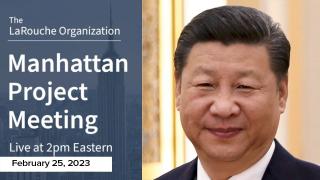Gottfried Leibniz (1646-1716), the founder of the science of physical economy and the true inspiration for the American Revolution, would have been delighted with yesterday’s announcement: The twelve-point proposal by the government of China, called “China’s Position on the Political Settlement of the Ukraine Crisis,” is a substantial step, by the most powerful economy in the world, toward a dialogue for durable international peace. It is a powerful intellectual contribution to what has been offered by the Vatican and Pope Francis, and by the nation of Brazil. Congruent in all essential respects with Helga Zepp-LaRouche’s Ten Principles for a New Strategic and Development Architecture, it is a product, not of geopolitical scheming, but of something far deeper, a quality of thought and culture that Leibniz identified and described in 1697:
“Indeed, it is difficult to describe how beautifully all the laws of the Chinese, in contrast to those of other peoples, are directed to the achievement of public tranquility and the establishment of social order, so that men shall be disrupted in their relations as little as possible. Certainly by their own doing men suffer the greatest evils and in turn inflict them upon each other…. What harm, then, if some nation has found a remedy (for these evils)? Certainly, the Chinese above all others have attained a higher standard…. So great is obedience towards superiors and reverence toward elders, so religious, almost, is the relation of children toward parents, that, for children to contrive anything violent against their parents, even by word, is almost unheard of, and the perpetrator seems to atone for his actions…. Moreover, there is among equals, or those having little obligation to one another, a marvelous respect, and an established order of duties. To us, not enough accustomed to act by reason, and rule, this smacks of servitude; yet among them, where these duties are made natural by use, they are observed gladly.” [Writings on China]






